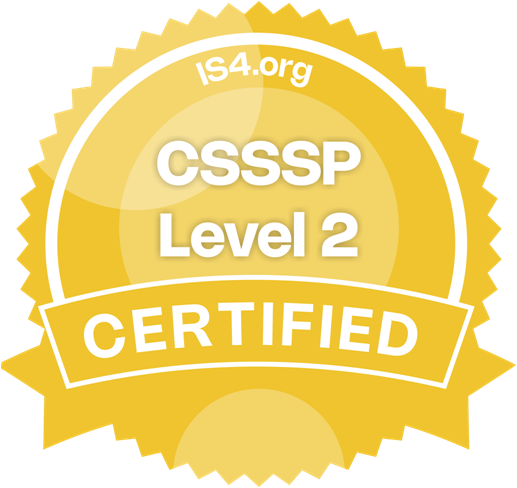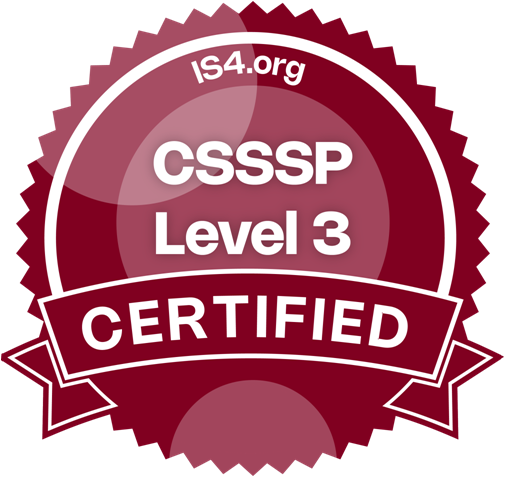CSSSP Levels
About CSSSP
Experience Requirement: CSSSP requires candidates to have a certain amount of professional experience in the field of space security or related disciplines, ensuring that certified professionals possess practical knowledge and expertise.
Continuing Education: CSSSP emphasizes the importance of ongoing professional development and lifelong learning, encouraging certified professionals to stay updated on emerging threats, technologies, and best practices in space security through continuing education and training.
Ethical Code of Conduct: CSSSP incorporates a code of ethics or professional conduct, outlining the ethical responsibilities of space security professionals and promoting integrity, honesty, and accountability in their work.
Global Recognition: CSSSP aims for global recognition and acceptance, establishing itself as a prestigious certification recognized by space agencies, industry organizations, and governments worldwide.
Community Engagement: CSSSP fosters a community of certified professionals, providing opportunities for networking, knowledge sharing, and collaboration to address common challenges and advance the field of space security collectively.

CSSSP Level I: Specialist
- Entry-Level Expertise: CSSSP Level I certification signifies that individuals have acquired foundational knowledge and skills in space security, making them qualified for entry-level positions in space security operations and analysis.
- Career Entry Point: For professionals aspiring to enter the field of space security, CSSSP Level I serves as a valuable credential, providing a pathway to entry-level roles such as security operations center (SOC) analysts, threat intelligence analysts, or security administrators in space-related organizations.
- Validation of Competence: Achieving CSSSP Level I certification validates an individual’s competence in fundamental concepts and practices of space security, enhancing their credibility and marketability to potential employers in the space industry.

CSSSP Level II: Professional
- Advanced Expertise: CSSSP Level II certification demonstrates that individuals possess advanced knowledge and skills in space security, qualifying them for roles as auditors, policy makers, or senior analysts in space security organizations.
- Policy Development and Implementation: Professionals certified at this level are equipped to contribute to the development and implementation of space security policies, standards, and compliance frameworks, ensuring that space operations adhere to established security protocols and regulatory requirements.
- Strategic Impact: CSSSP Level II holders play a crucial role in shaping organizational strategies and initiatives related to space security, contributing to risk management, governance, and strategic decision-making processes within their respective organizations.

CSSSP Level III: Expert
- Highest Level of Proficiency: CSSSP Level III certification represents the highest level of proficiency in space security, indicating that individuals possess extensive knowledge and experience in network operations, administration, forensics, and defensive/offensive security strategies.
- Leadership and Innovation: Experts certified at this level are leaders and innovators in the field of space security, capable of leading specialized teams, conducting advanced forensic investigations, and devising complex defensive and offensive security strategies to protect space assets against emerging threats.
- Strategic Consultation: CSSSP Level III holders provide strategic consultation and guidance to organizations on a wide range of space security issues, including threat intelligence analysis, incident response planning, and security architecture design, helping organizations stay ahead of evolving cyber threats and maintain a secure posture in space operations.
Certified Space Security Specialist Professional (CSSSP) certification holds significant importance for several reasons:
- Specialized Expertise: CSSSP signifies that you have acquired specialized knowledge and skills in space security, including understanding the unique challenges and considerations involved in securing space assets. This expertise is increasingly valuable as the space industry continues to grow and evolve.
- Career Advancement: CSSSP certification can enhance your career prospects by demonstrating your commitment to professional development and excellence in the field of space security. It sets you apart from your peers and may open up opportunities for advancement in your current organization or within the broader space industry.
- Industry Recognition: CSSSP is recognized by the International Society of Space and Security Specialists (IS4) and other relevant organizations in the space sector. Achieving this certification demonstrates your credibility and proficiency as a space security professional, earning the respect of colleagues, employers, and clients.
- Global Relevance: Space security is a global concern, and CSSSP certification holds international recognition. Whether you work for a government agency, a commercial space company, or a research institution, CSSSP signifies your ability to address space security challenges on a global scale.
- Contribution to Safety and Security: By obtaining CSSSP certification, you contribute to the safety and security of space assets, which are essential for various purposes, including communications, navigation, scientific research, and national security. Your expertise helps safeguard these assets against potential threats and vulnerabilities.
- Professional Growth: CSSSP certification is not just a one-time achievement but a commitment to ongoing professional growth and development. Maintaining your certification requires staying updated on emerging threats, technologies, and best practices in space security, ensuring that you remain at the forefront of the field.
Core Domains: CSSSP is structured around core domains essential for space security professionals. These domains include:
- Space Mission Planning: Space Mission Planning involves the strategic and tactical coordination of activities related to space missions, including satellite launches, spacecraft operations, and exploration missions. Professionals in this domain are responsible for defining mission objectives, selecting appropriate spacecraft and payloads, optimizing orbital trajectories, managing mission timelines, and ensuring compliance with regulatory requirements. Effective space mission planning requires expertise in areas such as aerospace engineering, orbital mechanics, risk assessment, and project management.
- Space Systems Security: Covering the principles and best practices for securing spacecraft, satellites, and other space assets.
- Space Threat Analysis: Identifying and assessing potential threats to space assets, such as orbital debris, cyberattacks, and space weather phenomena.
- Space Risk Management: Developing risk mitigation strategies and contingency plans to protect space assets from various threats and vulnerabilities.
- Space Incident Response and Recovery: Establishing protocols and procedures for responding to and recovering from security incidents in space operations.
- Information Assurance and Asset Management: Information Assurance and Asset Management in the context of space security involve safeguarding critical information and space assets against unauthorized access, disclosure, alteration, or destruction. Professionals in this domain implement security controls and measures to protect sensitive data, intellectual property, and physical assets throughout their lifecycle. This includes identifying and assessing security risks, developing security policies and procedures, implementing access controls, encrypting data transmissions, conducting regular security audits, and managing inventory and configuration of space assets.
- Space Cyber Intelligence and Cyber Warfare: Space Cyber Intelligence and Cyber Warfare focus on gathering intelligence, analyzing threats, and conducting offensive and defensive cyber operations in the space domain. Professionals in this domain monitor and assess cyber threats targeting space assets, analyze adversary capabilities and intentions, and develop strategies to protect space systems from cyber attacks. This may involve employing techniques such as threat intelligence analysis, malware analysis, vulnerability assessment, penetration testing, and incident response planning to detect, mitigate, and counter cyber threats in space environments.
- Space Cybersecurity Operations: Space Cybersecurity Operations involve the day-to-day management and implementation of cybersecurity measures to protect space assets and infrastructure from cyber threats. Professionals in this domain monitor network traffic, detect and respond to security incidents, deploy and manage security technologies such as firewalls, intrusion detection systems, and endpoint protection solutions, and ensure compliance with cybersecurity policies and standards. They also collaborate with other stakeholders to identify security requirements, assess risks, and implement appropriate security controls to maintain the confidentiality, integrity, and availability of space systems and data.
- Space Cybersecurity Forensics Penetration Testing and Computer Network Defense: Space Cybersecurity Forensics, Penetration Testing, and Computer Network Defense involve conducting forensic investigations, penetration testing, and defensive operations to identify, analyze, and mitigate cyber threats targeting space systems and networks. Professionals in this domain use forensic techniques and tools to collect and analyze digital evidence related to security incidents, identify vulnerabilities in space systems and networks through penetration testing, and develop and implement defensive measures to prevent unauthorized access, exploitation, and disruption of space operations. This requires expertise in digital forensics, penetration testing methodologies, incident response procedures, and security analysis tools.
- Space Information Assurance: Space Information Assurance focuses on ensuring the confidentiality, integrity, and availability of information and communication systems used in space missions and operations. Professionals in this domain implement security controls and measures to protect sensitive information, communications, and data transmissions from unauthorized access, interception, tampering, or disruption. This includes encrypting data transmissions, securing communication links, implementing access controls, conducting security assessments, and monitoring and auditing system activities to detect and mitigate security threats and vulnerabilities in space environments.
- Space Policy and Regulations: Understanding the legal frameworks and regulatory requirements governing space activities, including international treaties and agreements.
Mapped effectively to the Department of Defense Directive (DoDD) 8140.03
- To ensure that IS4.org’s Certified Space Security Specialist Professional (CSSSP) program is aligned and mapped effectively to the Department of Defense Directive (DoDD) 8140.03, several key elements are added or emphasized within the CSSSP curriculum and certification standards. These additions will ensure that the space cybersecurity workforce meets the evolving needs of DoD cyber operations, especially in the context of space, which is increasingly recognized as a critical domain for national security:
- Identify Specific Space Cyber Roles and Competencies: is4 has aligned the CSSSP certification with the specific roles and competencies outlined in DoDD 8140.03. This includes identifying and integrating space-specific cyber roles within the DCWF (DoD Cyber Workforce Framework), ensuring that space cyber professionals possess the skills and knowledge required for these roles.
- Integrate DoD Cybersecurity Standards and Practices: is4 has incorporated DoD’s cybersecurity standards, practices, and protocols relevant to space operations. This includes familiarizing candidates with DoD-specific cybersecurity frameworks, risk management practices, and operational security procedures for space systems.
- Emphasize Operational Security for Space Systems: Given the strategic importance of space assets, CSSSP training emphasizes operational security practices tailored for space systems, including secure communication links, satellite network protection, and defense against anti-satellite (ASAT) cyber threats.
- Develop Role-Based Training Pathways: is4 has crated role-based training pathways that reflect the structure and requirements of DoDD 8140.03. We have developed specialized tracks within the CSSSP certification for space cyber operations, defense, intelligence, and technical support roles.
- Focus on Emerging Threats and Technologies: is4 has incorporated modules on emerging threats to space systems and evolving technologies such as quantum computing and artificial intelligence (AI). Understanding these areas is crucial for defending against advanced cyber threats and leveraging new technologies for space cybersecurity.
- Offer Continuous Learning and Development Opportunities: : is4 has aligned with DoDD 8140.03’s emphasis on continuous learning by offering advanced courses, workshops, and seminars that enable space cyber professionals to update their skills and knowledge in line with the latest developments in space technology and cybersecurity.
- Certification and Credentialing Alignment: CSSSP certification criteria have been aligned with the credentialing requirements of DoDD 8140.03, enabling professionals holding the CSSSP certification to be recognized as meeting the qualifications for designated cyber roles within the DoD.
- Collaboration with DoD Entities: Strengthen partnerships with DoD entities and defense contractors is the key to ensure that the CSSSP program remains relevant and aligned with the operational needs and security requirements of the DoD space missions.
- By incorporating these elements, the IS4.org CSSSP certification is well-positioned to support the strategic objectives of DoDD 8140.03, providing a trained and qualified workforce capable of securing the United States’ space assets and operations against cyber threats. This alignment also facilitates greater collaboration between IS4.org certified professionals and DoD cyber operations, enhancing the overall security posture of space missions.
International Society of Space and Security Specialists (ISSSS/IS4) Commitment: Learn What It Takes To Secure the Space
CSSSP Domains (CBK) mapped to DoD 8570/DoD 8140 and NIST
To effectively map the CSSSP domains to the DoD 8140 (which supersedes DoD 8570) and NIST frameworks, it’s crucial to ensure that these domains align with the updated competencies, roles, and cybersecurity practices advocated by these frameworks. Here’s a suggested approach to ensure alignment and relevance:
- Space Cybersecurity Foundation: Align with NIST’s foundational cybersecurity principles and the basic cyber operational skills outlined in DoD 8140, ensuring a strong base in cyber defense mechanisms, cryptography, and secure communication protocols specific to space operations.
- Space Security Planning, Policy, and Leadership: This domain should map to leadership and management roles within DoD 8140, focusing on strategic planning, policy development, and governance in space cybersecurity contexts.
- Cybersecurity Threats in Space: Update to include emerging threats identified by NIST and DoD, focusing on the unique vulnerabilities of space systems to cyber-physical attacks, jamming, spoofing, and other cyber threats in the space domain.
- Space System Survivability and Cyber Warfare: Ensure compatibility with DoD 8140’s emphasis on mission assurance and operational resilience, integrating NIST guidelines for system and information integrity in space environments.
- Cyber Warfare Capabilities in Space Missions: Map to DoD’s cyber effects and cyber operations categories, emphasizing offensive and defensive cyber capabilities within space missions, including anti-satellite operations and protection against them.
- Electronic and Cyber Warfare in Outer Space: Align with the technical and operational aspects of electronic warfare as outlined in DoD 8140, focusing on the application of these principles to outer space scenarios.
- Risk Management Framework (RMF) Applied to Space Projects and Systems: Directly map to NIST’s RMF (SP 800-37) and DoD’s implementation of RMF, focusing on its application to the accreditation of space systems and ensuring compliance with security controls.
- Space Threat and Vulnerability Analysis and Assessment: Align with NIST’s guidelines for risk assessment (SP 800-30) and DoD 8140’s approach to threat analysis and vulnerability scanning, tailored to the space sector’s specific needs.
- Counter Communications System and Counter-space Capabilities: Integrate with DoD’s focus on space control and protection strategies, as well as NIST’s guidelines on incident response (SP 800-61), emphasizing the disruption of adversary communications and counter-space technologies.
- Types of Counter-space Technology: This domain should cover the technical specifics of counter-space technologies, aligning with DoD 8140’s need for specialized knowledge in space operations and cyber effects roles.
- Measures and Effectiveness in Addressing Counter-space Capabilities: Map to performance measurement and effectiveness assessment principles in both NIST and DoD frameworks, focusing on evaluating counter-space strategies.
- Cybersecurity Principles for Space Systems and System of Systems (SoS): Ensure alignment with NIST’s security and privacy controls (SP 800-53) and DoD 8140’s system architecture principles, emphasizing the integration of cybersecurity into space SoS design and development.
- Space Security Architecture and Operation: Tailor to align with DoD 8140’s focus on secure systems architecture and operational security, applying these concepts to the design and operation of secure space systems.
- Space Network and System Reverse Engineering: Align with the cyber IT and cybersecurity technical roles in DoD 8140 that require understanding of reverse engineering techniques, tailored to space systems for vulnerability analysis and threat modeling.
- Space Embedded Systems Cybersecurity: Focus on securing embedded systems in space hardware, aligning with NIST guidelines for securing industrial control systems (SP 800-82) and DoD 8140’s emphasis on hardware assurance.
